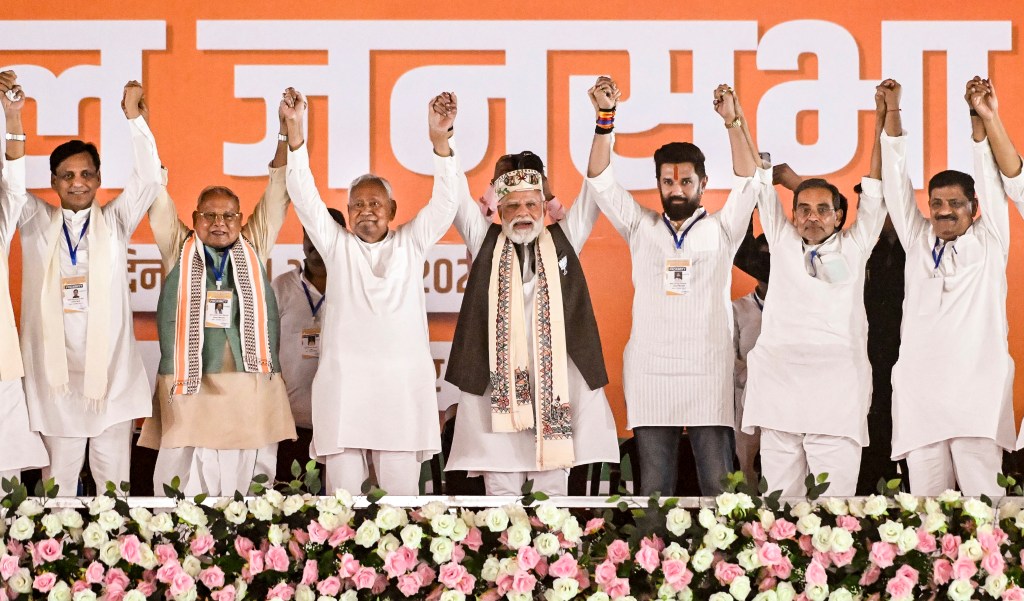IN A country in which it is always election season, it is hard for political commentary to rise above mundane tripe. As a columnist with an outsized sense of my responsibility to you, dear readers, I am going to try this week to get beyond covering the Prime Minister’s latest speech and Tejashwi Yadav’s anointment as the chief ministerial candidate of the Mahagathbandhan. I have said more than once already that it is my fervent hope that Prashant Kishor’s Jan Suraaj party somehow manages to win because he is not a ‘potted plant’ (political princeling) and has spent more than two years wandering about the villages of Bihar trying to understand what the people of our poorest state really need. I have also said, more than once, that if there were a hundred more like him in our ancient and wondrous land, it might end up becoming modern as well as wondrous.
So, let’s talk about other aspects of democracy that somehow, we never get around to discussing. A disturbing example from recent elections is the way our political leaders have openly started using taxpayers’ money to win votes. Ever since I covered my first Lok Sabha election in 1977, I was sickened by the sight of Congress party workers turning up in the homes of Delhi’s poorest citizens and offering them money, booze, blankets and saris. In those days, this bribery may well have been paid for out of party sources so there was a certain legitimacy about the practice.
Today bribing voters at election time has become a more sophisticated exercise as we saw in Maharashtra last year when the mood of the election was transformed in favour of the government because of the Ladki Bahin scheme which was implemented just before the election. It puts Rs 1,500 a month into the bank accounts of supposedly destitute women and by the time voting began in Maharashtra, hundreds of thousands of women already received this largesse. Many people that I know personally said they had decided not to vote out the government because of this scheme.
Something similar has happened in Bihar. As the Prime Minister reminded us in his rally last week, one crore Bihari women have already received Rs 10,000 under the Mukhyamantri Mahila Rozgar Yojana. Many, he said proudly, have already started using it to start small businesses. The question really is whether this is truly a welfare scheme or just a cynical attempt to buy votes with money that should have already been spent on creating real jobs in Bihar?
Copycat schemes are already on offer from the INDIA alliance. Tejashwi Yadav has promised that if he becomes chief minister, he will make sure that community mobilisers, Jeevika Didis, will have permanent government jobs with monthly salaries that could go up to Rs 2 lakh. He has also promised government jobs as part of a scheme that could cost Rs 29 lakh crore. Bihar would not be our poorest state if it had this kind of money to fritter away. But who cares? Indian voters are used to politicians making false promises.
Since Narendra Modi became prime minister, they have also been distracted from asking tough questions through angry nationalism that puts questioners and critics in the anti-national basket. As someone who must spend time engaging in conversations on X, I have found myself called anti-India every time I have criticised the Prime Minister. When I have pointed out that in a democracy criticising governments and political leaders is a fundamental right, the response has usually been to drag my personal life through the mire. If it is the Hindutva lobby who picks up cudgels in defence of Modi, then I am painted as not just anti-India but anti-Hindu. These are the rules of autocracies. But there is a method in the madness.
If you can shut down all critics, then who will ask important questions like why taxpayers money is being used to win elections? The Bihar election interests me more than usual this time because I have openly endorsed Prashant Kishor, so I have watched the news from that state carefully. In the hysterical bulletins and raucous debates that fill my TV screen every evening, I have waited for one serious attempt to discuss whether schemes that materialise on the eve of voting are not bribery. All I have come across are passing references to this which speaks very poorly of political reporting in general.
In the seventies, when I began my journalism career, I remember that what was considered political reporting was no more than reporting on the latest speeches of political leaders. The Emergency changed this dramatically because when Mrs Gandhi’s censorship bureau started ordering editors to ‘give prominence’ to her speeches and to paste Sanjay Gandhi’s pictures on front pages, we were reminded of what real political journalism should look like. TV reporters covering the election in Bihar seem to have reverted to passing speech-reporting off as political commentary.
Rallies addressed by important political leaders are covered in tedious detail as was the ‘yatra’ on which Rahul Gandhi set off with Tejashwi as his companion. But there has been almost no attempt to talk to Bihar’s voters to find out what their most serious problems are. This is unfair to Bihar, and it is bad journalism. Buying votes with taxpayers’ money will become the norm.

